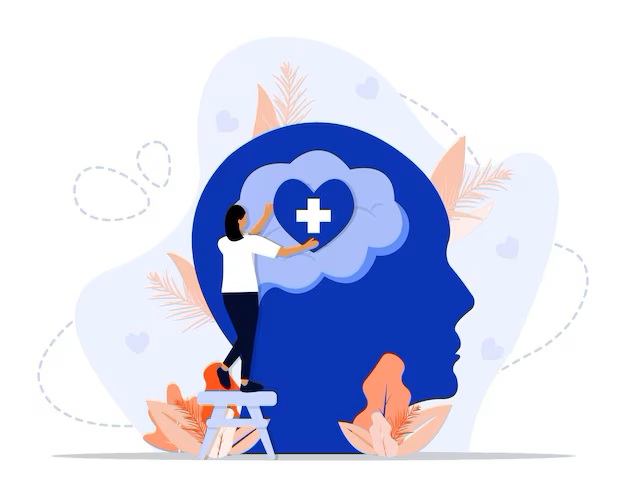Mental Health & Emotional Wellnes

Need Guidance On Your Problems?
Consult With The Best Online Counsellors
Mental Health & Emotional Wellness
Discover inner peace and emotional balance through our specialized healing therapies. Whether you're facing daily stress or deep emotional wounds, our healers are here to support your journey toward mental clarity and happiness.
✨ Areas We Help With:
-
Stress & Anxiety Relief
- Learn to manage overwhelming thoughts and daily stress through relaxation techniques, hypnotherapy, and guided meditation.
- Reclaim calmness and control over your emotions.
-
Depression Support & Healing
- Work with compassionate healers to release emotional heaviness and regain motivation, joy, and self-worth.
- Holistic methods to uplift your mood and energy.
-
Sleep Disorders (Insomnia, Disturbed Sleep)
- Improve sleep quality with natural therapies that relax the mind and body.
- Experience deep, restful sleep with techniques tailored to your needs.
-
Anger Management
- Understand the root causes of anger and learn to respond calmly.
- Empower yourself with tools to express emotions healthily.
-
Fear, Phobia & Panic Attacks
- Overcome fears and phobias through powerful healing modalities like hypnotherapy and energy healing.
- Gain freedom and confidence in your daily life.
-
Emotional Trauma & Grief Support
- Heal from past traumas and loss with gentle yet effective therapies.
- Create space for emotional release, acceptance, and growth.
-
Inner Child Healing
- Connect with your inner child to heal unresolved emotional wounds.
- Foster self-love, joy, and emotional wholeness.
-
Mindfulness & Meditation Guidance
- Learn simple, effective practices to stay present and centered.
- Cultivate peace of mind and emotional resilience.
Your body is your temple—care for it with love and natural healing.
✨ Book a session with our expert healers and feel the difference.
❓ FAQ – Mental Health & Emotional Wellness
1. What is mental health?
Mental health refers to a person’s emotional, psychological, and social well-being. It affects how we think, feel, and act, and influences how we handle stress, relate to others, and make choices.
2. What is emotional wellness?
Emotional wellness is the ability to manage your emotions in a healthy way. It involves recognizing your feelings, understanding your emotional needs, expressing emotions constructively, and maintaining positive relationships.
3. Why is mental health important?
Mental health is crucial because it influences all areas of life, including physical health, relationships, and productivity. It impacts how we manage stress, make decisions, and cope with difficult situations.
4. What are the signs of poor mental health?
Signs of poor mental health can include:
-
Persistent sadness, anxiety, or irritability
-
Withdrawal from social activities or relationships
-
Difficulty concentrating or making decisions
-
Extreme mood swings
-
Feeling hopeless or helpless
-
Changes in sleep or appetite
-
Physical symptoms like headaches or stomachaches
5. What can I do to improve my mental health and emotional wellness?
-
Practice mindfulness or meditation to reduce stress.
-
Exercise regularly to release endorphins and improve mood.
-
Stay connected with family, friends, and support networks.
-
Get enough sleep to allow your mind and body to recover.
-
Seek professional help from a therapist, counselor, or psychiatrist if needed.
-
Set healthy boundaries and learn to say no when necessary.
-
Engage in activities you enjoy to boost your mood and sense of fulfillment.
6. How can I support a friend or family member with mental health challenges?
-
Listen without judgment – Offer a supportive, empathetic ear.
-
Encourage professional help – Gently suggest speaking with a therapist or doctor.
-
Be patient – Understand that recovery takes time and can be a slow process.
-
Stay informed – Learn more about mental health conditions to better understand what they may be going through.
7. When should I seek professional help?
You should seek professional help if:
-
Your emotions are overwhelming or interfering with daily life.
-
You feel like you're not coping or managing well.
-
You're experiencing suicidal thoughts or behaviors.
-
A loved one is exhibiting severe symptoms or a decline in mental health.
8. What are the most common mental health conditions?
-
Anxiety Disorders: Excessive worry or fear that affects daily life.
-
Depression: Persistent sadness or loss of interest in activities.
-
Bipolar Disorder: Extreme mood swings between high (mania) and low (depression).
-
Obsessive-Compulsive Disorder (OCD): Repetitive thoughts (obsessions) and behaviors (compulsions).
-
Post-Traumatic Stress Disorder (PTSD): Emotional distress following a traumatic event.
9. Can lifestyle changes help manage mental health?
Yes, positive lifestyle changes can significantly improve mental health, including:
-
Regular exercise
-
Balanced diet
-
Staying connected with loved ones
-
Practicing relaxation techniques such as yoga or meditation
10. How do I cope with stress or anxiety?
-
Breathing exercises: Practice deep breathing to calm your mind.
-
Physical activity: Exercise can help relieve stress.
-
Relaxation techniques: Yoga, meditation, or progressive muscle relaxation.
-
Time management: Break tasks into smaller, manageable steps.
-
Talk to someone: Sharing your thoughts with a trusted person can help.
11. What should I do if I have suicidal thoughts?
-
Reach out for help immediately. Call a suicide prevention hotline, speak to a counselor, or visit an emergency room.
-
In the U.S., the National Suicide Prevention Lifeline is 988 (or 1-800-273-TALK).
-
In other countries, find the local suicide prevention hotline for immediate support.
12. What role does stigma play in mental health?
Stigma refers to the negative stereotypes and judgments associated with mental health conditions. This stigma can prevent people from seeking help and can worsen feelings of isolation or shame. Reducing stigma involves openly discussing mental health and normalizing conversations about emotional well-being.
13. How can I manage work-related stress or burnout?
-
Set boundaries to prevent work from overwhelming your personal time.
-
Prioritize tasks and delegate when possible.
-
Take breaks throughout the day to recharge.
-
Seek support from a manager, HR, or a therapist if you feel burnt out.
-
Practice relaxation techniques during work breaks.
14. What are some common myths about mental health?
-
Myth: Mental health problems are a sign of weakness.
Fact: Mental health issues are common and can affect anyone, regardless of strength or character. -
Myth: People with mental health problems are dangerous.
Fact: The vast majority of people with mental health conditions are not violent. -
Myth: Therapy is only for people with severe mental illnesses.
Fact: Therapy can benefit anyone seeking to improve their emotional well-being or cope with life's challenges.
15. What are some resources for mental health support?
-
Therapists or counselors – Licensed professionals who can help you manage mental health issues.
-
Support groups – Local or online groups where people share experiences and coping strategies.
-
Helplines – Confidential, free support, such as the National Suicide Prevention Lifeline, or others specific to your country.
-
Employee Assistance Programs (EAP) – Programs offered by employers that provide free counseling and mental health services.
🌀 Feel better. Move freely. Live fully.
Start your journey to comfort and balance today with HealersMeet.
-

- H M PURUSHOTHAMAHindi,Kannada
Exp :8
Years
₹0/Min Free
-

- PUSHAP HASS SHARMAEnglish,Hindi
Exp :1
Years
₹0/Min Free
-

- HEMA SHARMAEnglish,Hindi
Exp :5
Years
₹0/Min Free
-

- VenkatCareer,Hypnotherapist,Life Coach,NLP Life Coach,Relationship,TechnologyEnglish,Hindi,Kannada,Tamil
Exp :40
Years
₹100/Min Free
-

- Shrilakshmi HanumasagarEnglish,Hindi,Marathi,Sanskrit,Kannada
Exp :5
Years
₹0/Min Free
-

- PRASHANTHypnotherapist,Palmistry,Prashana,Psychologist,Vedic goldEnglish,Hindi
Exp :2
Years
₹0/Min Free
-

- Dr. Mahaveer GautamHindi
Exp :35
Years
₹0/Min Free
-

- Somnath bhattacharyaHypnotherapist,Life Coach,NLP Life Coach,Psychologist,RelationshipEnglish,Hindi,Bengali
Exp :25
Years
₹0/Min Free
-

- TARUN KUMAR DEWANGANCareer,Hypnotherapist,Other,RelationshipHindi
Exp :15
Years
₹0/Min Free
-

- SUDHIR KUMAR SAHUHindi,Oriya
Exp :10
Years
₹0/Min Free
-

- Santosh KaushikHypnotherapistHindi
Exp :3
Years
₹0/Min Free
-

- Anita MahajanCareer,Hypnotherapist,Life Coach,Marriage Counselling,NLP Life Coach,Numerology,Relationship,Tarot Reading,VastuEnglish,Hindi,Punjabi
Exp :7
Years
₹/Min Free
-

- SnehlataHypnotherapistEnglish,Hindi,Marathi
Exp :12
Years
₹0/Min Free
-

- Dr Lalit SuriHypnotherapist,Life Coach,Marriage Counselling,VastuEnglish,Hindi,Punjabi
Exp :20
Years
₹/Min Free
-

- Uday shanker MishraHypnotherapist,Life Coach,Marriage Counselling,RelationshipHindi
Exp :2
Years
₹0/Min Free
-

- Deepti BhardwajPsychologistEnglish,Hindi
Exp :10
Years
₹0/Min Free
-

- DEEPIKAHypnotherapistEnglish,Hindi,Punjabi
Exp :7
Years
₹0/Min Free
-

- Suman SagarRelationshipEnglish,Hindi
Exp :1
Years
₹0/Min Free
-

- KAVITA RANIEnglish,Hindi
Exp :3
Years
₹0/Min Free
-

- NAVIN KUMAR SINGHCareer,Hypnotherapist,Relationship,TechnologyEnglish,Hindi,Oriya
Exp :2
Years
₹0/Min Free
-

- Banasree DasHypnotherapist,Marriage Counselling,NLP Life Coach,RelationshipEnglish,Hindi,Bengali
Exp :3
Years
₹0/Min Free
-

- Geeta NagpalHypnotherapist,Numerology,Other,RelationshipEnglish,Hindi
Exp :5
Years
₹/Min Free
-

- ANKIT VARSHNEYHypnotherapist,Life Coach,Marriage Counselling,NLP Life Coach,OtherEnglish,Hindi
Exp :1
Years
₹/Min Free
-

- Jasminder Singh KalraRelationshipEnglish,Hindi,Punjabi
Exp :
Years
₹0/Min Free
-

- ANIL GOGNALife Coach,Relationship,HypnotherapistEnglish,Hindi,Punjabi
Exp :3
Years
₹0/Min Free
-

- DR SUNIL HIVRECareer,Relationship,HypnotherapistHindi,Marathi
Exp :5
Years
₹/Min Free
-

- DR PRAMITA BASUHypnotherapist,Marriage Counselling,Other,RelationshipHindi,Bengali
Exp :5
Years
₹/Min Free
-

- Padmavati SaraswatulaHypnotherapist,Life Coach,Other,RelationshipEnglish,Hindi,Bengali,Oriya,Telugu
Exp :2
Years
₹/Min Free
-

- Deepak RajvanshiHypnotherapist,Life Coach,Marriage Counselling,Prashana,RelationshipHindi
Exp :1
Years
₹/Min Free
-

- Sunita sainiRelationship,Vastu,HypnotherapistHindi,Punjabi
Exp :
Years
₹/Min Free
-

- AMARSINGH BHAISAREEnglish,Hindi
Exp :15
Years
₹1/Min Free
-

- R.SANDANA KALAEnglish,Hindi,Kannada,Tamil,Telugu
Exp :10
Years
₹1/Min Free
-

- Dr jayshree prabhuHypnotherapist,Life Coach,NLP Life Coach,Psychologist,RelationshipEnglish,Hindi,Marathi,Kannada
Exp :30
Years
₹/Min Free



